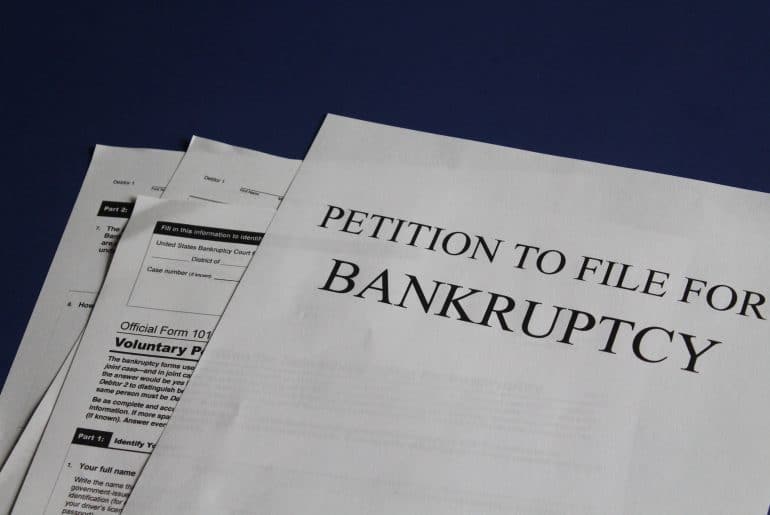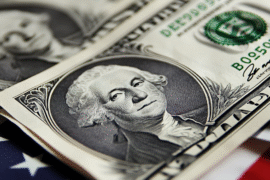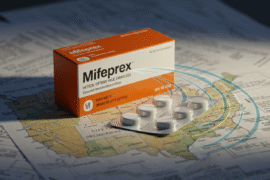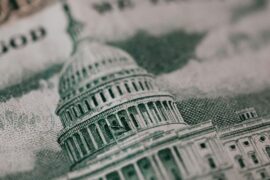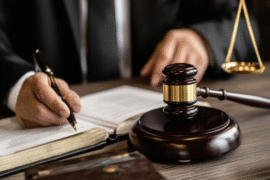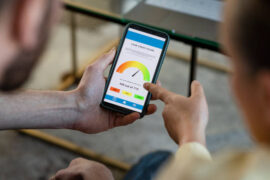This article may contain references to products or services from one or more of our advertisers or partners. We may receive compensation when you click on links to those products or services. Nonetheless, our opinions are our own.

Updated by Albert Fang
Undeniably, bankruptcy can be a scary proposition. For many, declaring bankruptcy is an extreme measure. However, it is reassuring to know that when used the right way and at the right time, it can preserve your peace of mind, save you money, and get you back on your feet financially.
Before you get in touch with an experienced bankruptcy lawyer, it is recommended that you examine all the other possible alternatives first. Keep in mind that declaring bankruptcy can be time-consuming and expensive.
Not only that, it can also have a far-ranging effect on various aspects of your life, like applying for a job or buying a new home.
- Assessing Your Financial Situation
-
Moving Forward With Bankruptcy: When and Why
- You are using your credit card to pay for everyday necessities.
- You are missing payments, and interest rates have gone up.
- You are paying a credit card debt using another credit card.
- You are considering getting money from your retirement account to pay for your debt.
- Your wages are going to be garnished.
- You are already working a second or third job.
- You have already tried all the available alternatives, and it has not helped.
- How to Declare Bankruptcy
- Filing for Chapter 7 Bankruptcy
- Filing for Chapter 13 Bankruptcy
- Declare Bankruptcy While You Still Have Cash
- Final Thoughts
- Recommended Reads
Assessing Your Financial Situation
To help you accurately assess your financial danger zone, ask yourself the following key questions:
- Do you only make minimum credit card payments?
- Are bill collectors always calling you?
- Are you considering consolidating your debts?
- Are you unsure how much you really owe?
- Are you using your credit card to pay for necessities?
- Does the thought of sorting out your finances stress or scare you?
If you answered yes to two (or more) of the questions above, it is recommended that you examine your financial situation more closely. In a nutshell, bankruptcy occurs when you owe more than you can actually afford to pay.
You can determine where you are financially by doing an inventory of all your liquid assets. This should include bonds, real estate, vehicles, college savings accounts, retirement funds, stocks, and other non-bank account funds. Provide a rough estimate for each item.
Collect and add up your credit card statements and bills. If your assets’ value is less than the amount you owe, declaring bankruptcy might be an option you can look into. However, bankruptcy is not something you should take casually. It pays to remember that it is not a cure-all for out-of-control debt.
Moving Forward With Bankruptcy: When and Why
If your debt is spiraling out of control, bankruptcy may be your more viable option. Below are some of the red flags that point bankruptcy might be your only way out:
You are using your credit card to pay for everyday necessities.
Using your credit card to pay for groceries or gas because you have no cash is a clear indication you are on a treadmill of debt. Most people use their credit cards to pay for basic necessities because they have used up their entire paycheck on debt payments.
Come to think of it, this setup can make your financial situation worse. Let’s say you spent $100 on your minimum credit card payment, and you charge another $100 in groceries to the credit card you just paid. Your total debt will go up from the money trade because of the interest.
You are missing payments, and interest rates have gone up.
Digging yourself out of debt when you’re paying for interest on top of your debt is challenging as it is. If you have missed a payment or two, most lenders, especially credit card providers can jack up the interest by as much as 30% or more.
Once the interest rate has gone that high, it’s safe to assume most of the monthly payments will go to the interest and not the capital. Since the interest hike can increase your monthly due, you will have a harder paying time keeping up.
You are paying a credit card debt using another credit card.
Transferring the balance of one credit card to another, taking out a cash advance to pay for your credit card debt is nothing more than a stalling tactic and won’t make your debt go down. If it’s a one-time thing, it’s not considered a red flag. However, if it happens on a routine basis, your debt can skyrocket dramatically before you know it.
You are considering getting money from your retirement account to pay for your debt.
Retirement funds are money allocated for your future. As soon as you pull your retirement money out, you are not only robbing your future self; you are also creating a tax bill that might become another addition to the debt you have accumulated.
Most retirement accounts are protected in bankruptcy so refrain from pulling any money out of it if you are considering declaring it.
Your wages are going to be garnished.
In some cases, lenders can obtain a court order to garnish your wages. This means they have an arrangement with your employer or bank to take money directly from your paycheck. Your wages can only be garnished if you take home at least 40 times the minimum salary weekly.
If you receive notice that lenders are attempting to garnish your wages, declaring bankruptcy can hinder the order from going forward. It is also possible for you to have the debt dismissed.
You are already working a second or third job.
For most people, having an additional income is enough to diminish their debts. However, it’s not true in all cases. If a second or third job helps pay some of your monthly bills, that’s an excellent place to start.
However, if your debt has gotten so big that even an extra 10 hours of work won’t be able to put a dent in it, extreme measures like bankruptcy might be your only way out.
You have already tried all the available alternatives, and it has not helped.
If you have tried all the options available and you are still not making any significant dent in your debt, it may be high time to file for bankruptcy.
How to Declare Bankruptcy
There are two ways you can go bankrupt. One of the most prevalent routes is filing for bankruptcy voluntarily. The second way is when creditors ask the court to order a person bankrupt.
There are various ways to file for bankruptcy, each with their own sets of pros and cons. Before filing for bankruptcy, consider it best to check with a lawyer so you can figure out the best move that is ideal for your circumstances.
Filing for Chapter 7 Bankruptcy
Some of the most prevalent reasons people file for Chapter 7 bankruptcy include massive medical expenses, unemployment, overextended credit, marital problems, and large medical expenses. Sometimes referred to as “straight bankruptcy,” Chapter 7 bankruptcy liquidates your assets, so your debt is paid off as much as possible.
The money from the assets liquidated will be distributed to your creditors like credit card companies and banks. Within four months, you will be given a notice of discharge. However, your bankruptcy record will remain in your credit card report for ten years.
Fortunately, you still have the option to purchase a home or property even with a recent bankruptcy on your record. If anything, Chapter 7 bankruptcy provides a quick and fresh start. However, in Chapter 7, bankruptcy is not the ideal option for everyone.
It is also essential to keep in mind that in Chapter 7 bankruptcy, all your assets will be sold to repay your creditors. If you have a home, company, or personal asset that you want to keep, Chapter 7 may not be the ideal option for you.
Filing for Chapter 13 Bankruptcy
Also known as reorganization bankruptcy, Chapter 13 bankruptcy is your best bet if you have some properties you would like to keep. Chapter 13 will enable you to pay off your debt over a specific period, usually 3 to 5 years.
If you have a predictable and consistent income, Chapter 7 can provide you some much-needed grace period. Any debt that remains at the end of the grace period is discharged.
Once approved by the court, creditors are required to stop contacting you. With Chapter 13 bankruptcy, you’ll just continue working and paying off your debts over the agreed period and still keep your properties and possessions.
Declare Bankruptcy While You Still Have Cash
Most people have the misconception that they should declare bankruptcy when they are penniless. However, not having money can make the process a lot harder. While you have the option to file for bankruptcy on your own, many opt to hire a bankruptcy attorney. A bankruptcy attorney’s typical fee can range from $1,000 to $2,500, even for simple cases.
If you are sure that bankruptcy is the best option for you, it would be a practical move to stop paying specific bills like credit cards (they can be discharged anyway) and save the money to pay for a lawyer. However, you are also required to keep paying your car loan or mortgage since you will need to make up for those missed payments and fees if you want to keep your car or home.
Also, as soon as you declare bankruptcy, your creditors will be notified. It is also possible to reduce the credit available to you or hinder you from using your credit cards. If you have been living primarily on credit, you will need cash on hand to pay for your living expenses once your bankruptcy petition has been submitted.
Final Thoughts
While filing for bankruptcy is scary, at times, it is necessary. If you continue to accumulate piles of unpaid bills, you will be doing yourself a disservice if you don’t file for bankruptcy. In similar cases, filing for bankruptcy might just give you the financial footing you need to start anew.

Reviewed and edited by Albert Fang.
See a typo or want to suggest an edit/revision to the content? Use the contact us form to provide feedback.
At FangWallet, we value editorial integrity and open collaboration in curating quality content for readers to enjoy. Much appreciated for the assist.
Did you like our article and find it insightful? We encourage sharing the article link with family and friends to benefit as well - better yet, sharing on social media. Thank you for the support! 🍉
Article Title: Filing for Bankruptcy: When and the Reasons Why
https://fangwallet.com/2020/10/24/filing-for-bankruptcy-when-and-the-reasons-why/The FangWallet Promise
FangWallet is an editorially independent resource - founded on breaking down challenging financial concepts for anyone to understand since 2014. While we adhere to editorial integrity, note that this post may contain references to products from our partners.
The FangWallet promise is always to have your best interest in mind and be transparent and honest about the financial picture.
Become an Insider

Subscribe to get a free daily budget planner printable to help get your money on track!
Make passive money the right way. No spam.
Editorial Disclaimer: The editorial content on this page is not provided by any of the companies mentioned. The opinions expressed here are the author's alone.
The content of this website is for informational purposes only and does not represent investment advice, or an offer or solicitation to buy or sell any security, investment, or product. Investors are encouraged to do their own due diligence, and, if necessary, consult professional advising before making any investment decisions. Investing involves a high degree of risk, and financial losses may occur including the potential loss of principal.
Source Citation References:
+ Inspo
